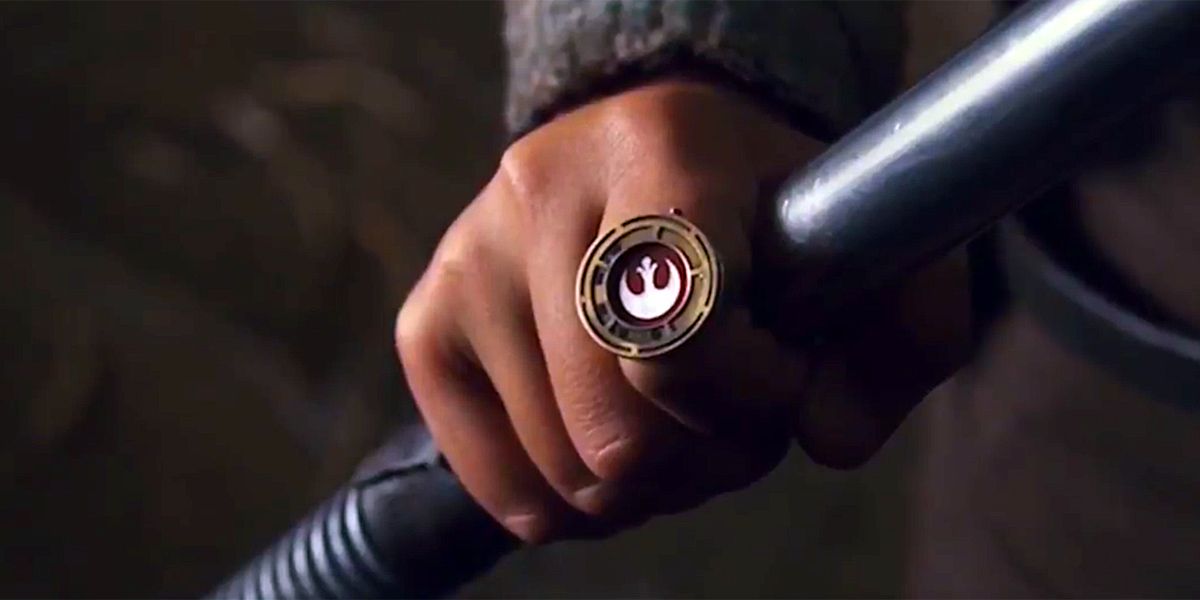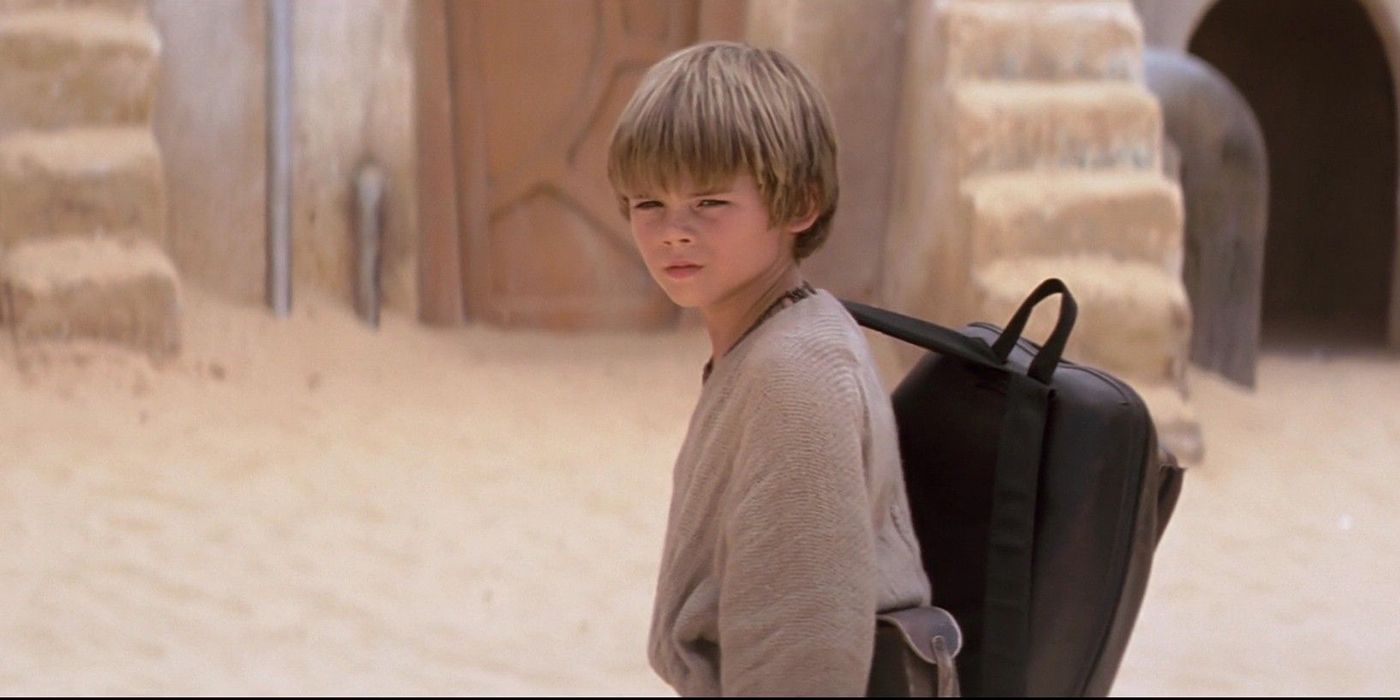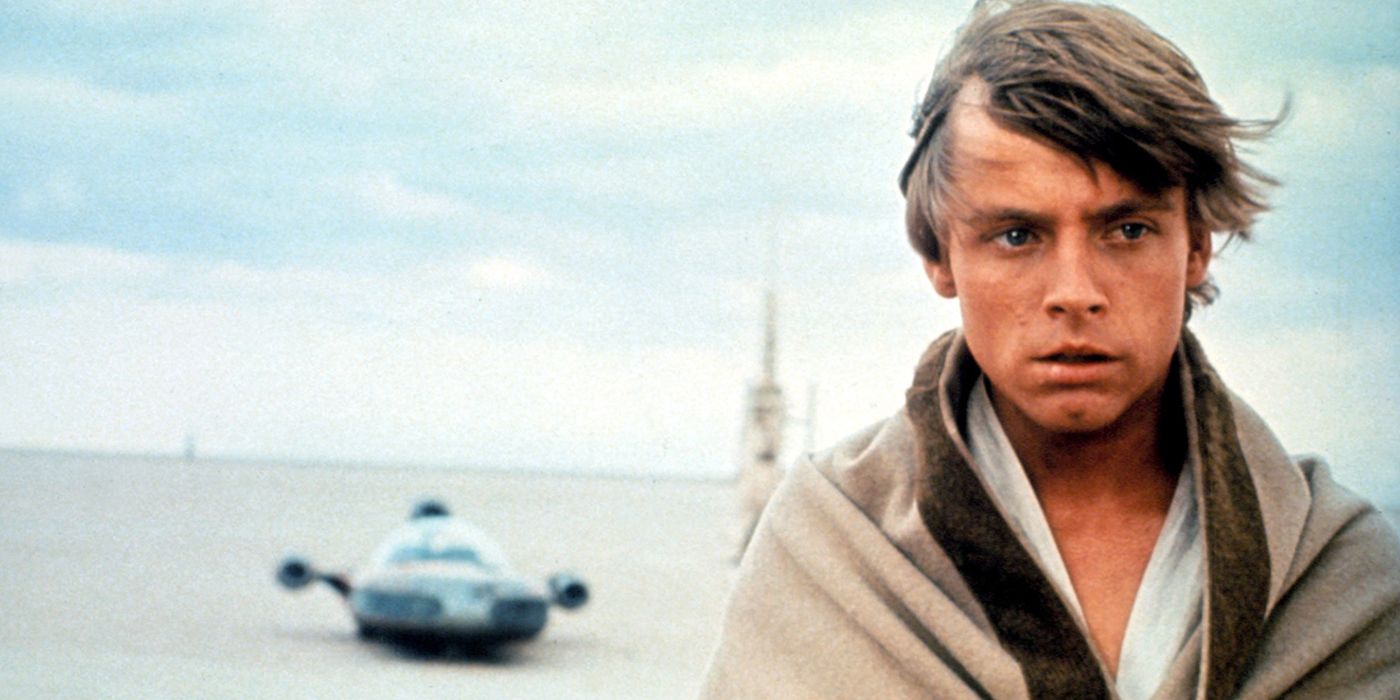What if Star Wars: The Rise of Skywalker's title is not referring to redemption or a resurrection... but to a galactic slave revolt of cosmic proportions? Let's take a look at the Skywalker name and other possible meanings of the intriguing title of Episode IX, by going back to the Star Wars' first Skywalker: Shmi.
Shmi Skywalker was Anakin Skywalker's mother. She was sold in the slave market to Gardulla the Hutt, gave birth to Anakin, and then when Gardulla lost a bet, mother and son became the property of junk dealer Watto. After Anakin left Tatooine to become a Jedi, Cliegg Lars, a moisture farmer, fell in love with Shmi, bought her bond and married her into his family. One dawn, she was kidnapped and tortured by Tusken Raiders, and despite Cliegg leading a doomed search party and Anakin's success in using the Force to find her, she died in her son's arms.
Years later, her stepson Owen and his wife Beru would adopt and raise Anakin's son, Luke, but they would not give Luke their family name, Lars. Luke's surname is, and always was, Skywalker, which was very risky in a galaxy ruled by Emperor Palpatine and Darth Vader... unless the name "Skywalker" was so common in the Outer Rim it would grant you instant invisibility.
Consider this: every other character in Star Wars has a normal family name that doesn't mean anything in particular. To cite but a few: Organa, Jinn, Erso, Kenobi, Palpatine, Amidala, Binks, Calrissian, Fett, Hux, etc.. They sound more exotic than Smith or Pérez, but none of these power players have names like, "Sheev Operaticket," "Padmé Hairqueen," or "Obi-Wan Highground." The only exception is Han Solo, who is named by a sympathetic Imperial recruiter, meaning that, interestingly enough, he also uses a descriptor to define himself.
So where could the Skywalker name come from? Some fans have theorized that Skywalker is the name given to slaves that are traded from one corner of the galaxy to another, or "Skywalkers," but it seems more likely that this term is specific to Tatooine slaves. It could be related to the planet's binary suns: with two different sunsets, the expression "working form sun till dawn" takes on a slightly different meaning -- maybe referring to the fact that these slaves have to be on their feet while the suns are walking in the sky.
Another potential origin is that Skywalker could be what the Hutts, who controlled the slave trade in Tatooine, called the poor souls that they forced to walk the plank to feed the desert's Sarlacc. Slaves too old, too weak, too small, too smart or too rebellious to be of any use had to walk into the sky for their master's entertainment. (Not so) fun fact: Tatooine slaves had a chip implanted in their necks that would explode if they tried to escape.
Let’s assume for argument's sake that every slave from Tatooine ever owned by a Hutt was named "First name + Skywalker." It would have been much easier, in this case, for Owen and Beru to sign up Luke like that, for administrative purposes, than to call him baby Lars. And how much safer for Luke -- nobody would be trying to hunt him down if the Empire knew that there were thousands of Skywalker slaves living in Tatooine.
Slavery is pervasive and insidious both in the main saga and in the spinoffs. In The Clone Wars, Anakin is almost as upset as he would be in Mustafar when he has to confront the Zygerrian Empire, which was built on slavery. In the sequel trilogy, Finn is a child soldier, stolen from his family and conditioned to be loyal to the First Order, the cruelest form of slavery. Rose and Paige Tico were slave children in a mining system, and there are slave children being mistreated on-screen in Canto Bight.
In Solo: A Star Wars Story, being indentured to a crime lord sets Han and Q’Ira on their path. And don’t forget about L3-37, who makes a point of liberating the droid slaves in the same movie from the same restraining bolts that R2-D2 and C-3P0 had to wear in Tatooine. Rey herself was sold as a child for drinking money on a desert planet, and although in The Force Awakens novelization she self-describes as a free scavenger, beholden to no-one, she still has no surname. Someone from Tatooine could call any of these characters a Skywalker.
Now let’s look at the title of Episode IX, and the plot rumors surrounding the state of the Galaxy when the crawl opens. The First Order controls the core and mid-rim, but they do so by exploiting the Outer Rim regions, you guessed it, through slavery. In turn, the Resistance is having trouble convincing the Core and Mid-Rim to resist, because their deal is not so bad… but the Outer Rim planets are poised to revolt.
It’s tempting, even, to imagine a scene in which one of the bad guys (Hux, Pryde, Palpatine) explains the actual meaning of the Skywalker name to one of the heroes -- only for them to spin it back into a call to revolt, much like Finn proudly identifies himself as "Rebel scum" at the end of The Last Jedi.
Great titles can be read in many different ways, and the slavery thread is too integral to the Star Wars story for it to be ignored entirely. Wouldn't it be glorious if The Rise of Skywalker wasn’t just about the last Skywalker/Solo's Force redemption arc, but about an actual revolt (or rise) of slaves (or Skywalkers) that genuinely brings balance to the Galaxy?
The last scene of The Last Jedi even combines these two ideas in the figure of that Force sensitive slave child holding a broom, wearing a Resistance ring and looking up with hope upon the starry sky. Perhaps this is a greater hint at what's to come in Episode IX than we first realized.
Directed and co-written by J.J. Abrams, Star Wars: The Rise of Skywalker stars Daisy Ridley, Adam Driver, John Boyega, Oscar Isaac, Lupita Nyong’o, Domhnall Gleeson, Kelly Marie Tran, Joonas Suotamo, Billie Lourd, Keri Russell, Anthony Daniels, Mark Hamill, Billy Dee Williams and Carrie Fisher, with Naomi Ackie and Richard E. Grant. The film arrives Dec. 20.




